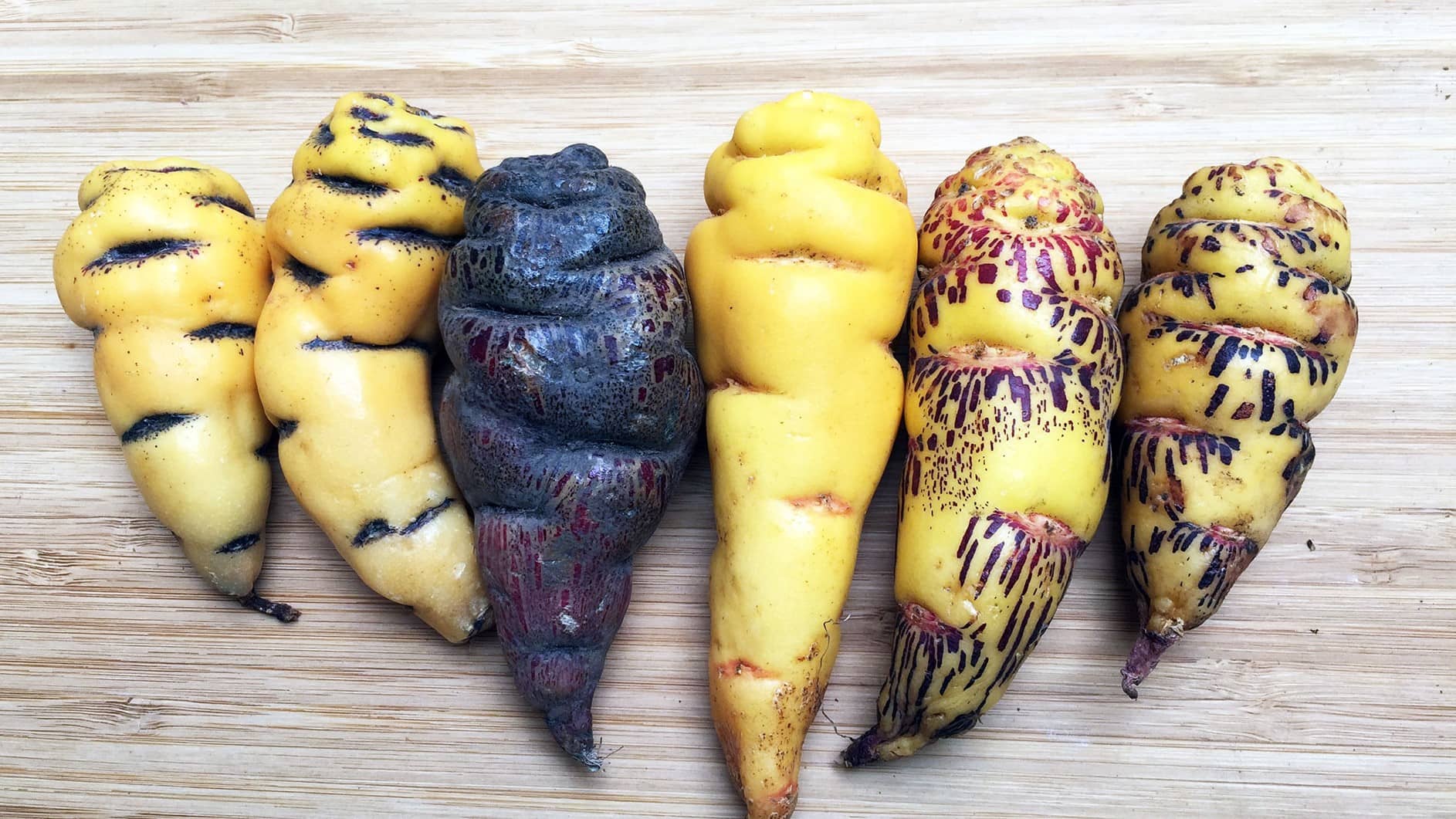
Mashua, also known as Tropaeolum tuberosum, is a fascinating root vegetable native to the Andes. This tuber, often overshadowed by its more famous cousins like potatoes and sweet potatoes, boasts a rich history and unique characteristics. Why should you care about mashua? Because it’s packed with nutrients, has a distinct peppery flavor, and offers numerous health benefits. From its vibrant colors to its role in traditional medicine, mashua is more than just a food item; it’s a cultural treasure. Curious about this hidden gem? Let’s dive into 15 intriguing facts that will make you appreciate mashua even more.
Key Takeaways:
- Mashua, a root vegetable from South America, has a rich history and is packed with nutrients like vitamin C and antioxidants, making it a valuable addition to modern diets.
- Mashua's unique flavor, colorful varieties, and environmental benefits make it a versatile and sustainable choice for traditional and modern cuisine, as well as for the environment.
What is Mashua?
Mashua, also known as Tropaeolum tuberosum, is a root vegetable native to the Andean region of South America. This tuber has been cultivated for centuries and is known for its unique taste and nutritional benefits. Let's dive into some fascinating facts about this lesser-known vegetable.
Historical Significance of Mashua
Mashua has a rich history that dates back to ancient civilizations in the Andes. It played a crucial role in the diet and culture of these communities.
- Ancient Cultivation: Mashua has been cultivated for over 2,000 years by indigenous peoples in the Andes.
- Incan Staple: It was a staple food for the Incas, who valued it for its nutritional properties and ease of cultivation.
- Medicinal Uses: The Incas also used mashua for medicinal purposes, believing it had properties that could treat various ailments.
Nutritional Benefits of Mashua
Mashua is not just a historical relic; it is packed with nutrients that make it a valuable addition to modern diets.
- High in Vitamin C: Mashua is rich in vitamin C, which helps boost the immune system and improve skin health.
- Antioxidant Properties: It contains antioxidants that help protect the body from free radicals and reduce inflammation.
- Low in Calories: This tuber is low in calories, making it an excellent choice for those looking to maintain a healthy weight.
Unique Characteristics of Mashua
Mashua stands out from other root vegetables due to its distinctive features and growing conditions.
- Distinctive Flavor: Mashua has a peppery, slightly bitter taste that sets it apart from other tubers like potatoes and yams.
- Colorful Varieties: It comes in various colors, including yellow, orange, and purple, each with its unique flavor profile.
- Hardy Plant: Mashua is a hardy plant that can grow in poor soil conditions and at high altitudes, making it ideal for the Andean region.
Culinary Uses of Mashua
Mashua is versatile in the kitchen and can be used in various dishes, both traditional and modern.
- Traditional Dishes: In the Andes, mashua is often boiled, roasted, or used in stews and soups.
- Modern Cuisine: Chefs around the world are beginning to experiment with mashua, incorporating it into gourmet dishes and fusion cuisine.
- Fermented Mashua: In some cultures, mashua is fermented to create a tangy, probiotic-rich food.
Environmental Impact of Growing Mashua
Growing mashua has several environmental benefits, making it a sustainable choice for farmers.
- Soil Health: Mashua helps improve soil health by fixing nitrogen, which benefits other crops planted in rotation.
- Biodiversity: Cultivating mashua promotes agricultural biodiversity, which is crucial for ecosystem stability.
- Low Water Requirement: This tuber requires less water compared to other crops, making it suitable for regions with limited water resources.
Final Thoughts on Mashua
Mashua, a tuber from the Andes, is more than just a food source. It's packed with nutrients, offering vitamin C, potassium, and antioxidants. This root has been a staple for centuries, providing health benefits like boosting the immune system and improving digestion. Its unique peppery flavor adds a twist to various dishes, making it a versatile ingredient in the kitchen.
Cultivating mashua is relatively easy, thriving in cooler climates and requiring minimal care. Its resilience to pests and diseases makes it an attractive option for sustainable farming. Plus, its medicinal properties have been recognized in traditional medicine, used to treat ailments like kidney stones and respiratory issues.
Incorporating mashua into your diet can be a delightful way to explore new flavors while reaping its numerous health benefits. Give this ancient tuber a try and enjoy its rich history and nutritional value.
Frequently Asked Questions
Was this page helpful?
Our commitment to delivering trustworthy and engaging content is at the heart of what we do. Each fact on our site is contributed by real users like you, bringing a wealth of diverse insights and information. To ensure the highest standards of accuracy and reliability, our dedicated editors meticulously review each submission. This process guarantees that the facts we share are not only fascinating but also credible. Trust in our commitment to quality and authenticity as you explore and learn with us.


